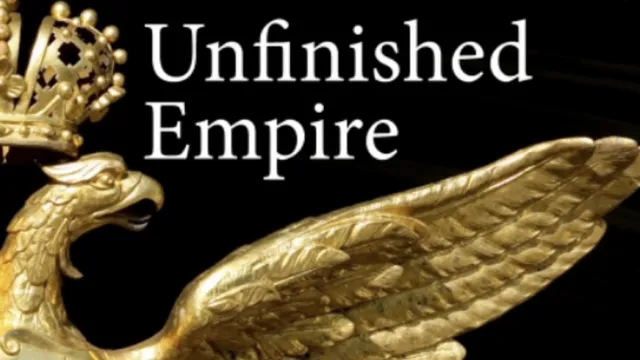
Putin claims all of Ukraine belongs to Russia amid peace talk failures
2025-06-21 23:53- Vladimir Putin stated at the St. Petersburg International Economic Forum that he considers Ukraine to be a part of Russia.
- Russian military forces have engaged in ongoing operations in various Ukrainian territories while peace talks face significant challenges.
- Putin's declaration highlights the Kremlin's territorial ambitions and the potential for continued conflict.
Express your sentiment!
Insights
In a recent address at the St. Petersburg International Economic Forum in Russia, President Vladimir Putin declared that he considers the territorial integrity of Ukraine a part of Russia. This assertion is part of a broader context in which Russia has engaged in military aggression against Ukraine since the invasion began in February 2022. The rhetoric coincides with ongoing attacks on various regions in Ukraine, including significant military operations targeting cities like Sumy. Putin’s remarks underline a persistent belief among Russian officials that Ukraine lacks sovereignty and should be viewed as a part of historical Russia. The invasion has seen Russia occupy several key Ukrainian territories, namely Donetsk, Luhansk, Kherson, and Zaporizhzhia, while also claiming Crimea as its own since 2014. Such territorial claims have been justified by Putin as rooted in shared history and culture, promoting a narrative that portrays Russians and Ukrainians as one people. This rhetoric aims to rationalize ongoing hostilities and could signify intentions for further territorial expansion into Ukraine, potentially under the guise of establishing buffer zones against perceived threats. Putin's statements come at a time when peace negotiations appear to be failing, further heightened by ongoing military actions and a lack of willingness from both sides to compromise. He has suggested that Russia does not seek Ukraine’s capitulation but is rather focused on securing its influence in the region. Reports suggest that Russian troops are gaining ground in northeastern areas of Ukraine as attacks intensify. This military strategy reflects a belief within the Kremlin that they can achieve success through sustained pressure and attrition. Ukrainian officials, in turn, have labeled Putin’s comments as cynical, viewing them as indicative of Moscow's reluctance to engage seriously in negotiations aimed at ending the conflict. Ukrainian Foreign Minister Andrii Sybiha described Putin’s assertions as strategies to distract from domestic failures under his rule while also calling into question the sincerity of Russia’s claim to sovereignty over Ukrainian territories. The conflict continues to have tragic ramifications, with numerous civilian casualties reported as Russian operations expand. The United States and other Western nations are closely monitoring the situation, as shifting geopolitical dynamics in the region intensify.
Contexts
The history of Russian imperialism in Ukraine is a complex and multifaceted narrative that spans several centuries, reflecting broader trends of power, culture, and national identity in Eastern Europe. The origins of Russian influence in Ukraine can be traced back to the 17th century, when the Cossack Hetmanate formed an alliance with the Tsardom of Russia. This partnership was ostensibly established to protect the Cossacks from Polish-Lithuanian domination. However, as time progressed, the relationship began to shift, leading to increasing Russian control over Ukrainian territories. By the late 18th century, following a series of partitions of Poland, significant portions of Ukraine fell under Russian rule, fundamentally altering the region's political landscape and cultural identity. This period set the groundwork for the systemic efforts by the Russian Empire to assimilate Ukrainian lands and suppress the burgeoning sense of national identity among Ukrainian people. Throughout the 19th century, the Russian Empire intensified its efforts to assert dominance over Ukraine, particularly after the failed revolutions of 1848 that swept across Europe. The imposition of censorship, coupled with policies aimed at promoting the Russian language and culture, was a hallmark of this imperial strategy. The Ukrainian language was banned in schools, and Ukrainian literature was largely suppressed, leading to the development of a national consciousness that wrestled with its identity amidst imperial attempts at Russification. The Great Reforms of the 1860s brought some administrative changes, but the drive to maintain control and suppress nationalism continued to loom large over Ukraine. Key figures in Ukrainian history emerged during this time, advocating for cultural revival and political rights, yet faced significant obstacles due to the repressive policies of the imperial government. The collapse of the Russian Empire in the wake of World War I offered a brief moment of hope for Ukrainian independence. The Ukrainian People's Republic declared itself in 1917, but this fledgling state was short-lived as the Bolshevik Revolution led to the imposition of Soviet power. The subsequent establishment of the Ukrainian SSR marked a new phase of imperialism, characterized by an even more oppressive regime that sought to eliminate Ukrainian nationalism through a process of collectivization and cultural homogenization. The traumatic events of the Holodomor in the early 1930s epitomized the extreme measures taken by the Soviet regime to enforce compliance, resulting in the deaths of millions and a legacy of trauma that continues to affect Ukraine's collective memory today. The dissolution of the Soviet Union in 1991 brought a resurgence of Ukrainian national identity and independence. However, the legacy of Russian imperialism did not dissipate with the Soviet collapse. Relations between Russia and Ukraine remained fraught, culminating in the annexation of Crimea by Russia in 2014 and the ongoing conflict in Eastern Ukraine. The resurgence of Russian imperial ambitions, coupled with the ideologies of ethnonationalism that fueled the conflict, reflect the enduring struggle for Ukraine to assert its sovereignty against historical patterns of imperial domination. Today, the history of Russian imperialism in Ukraine remains a critical aspect of understanding the country's contemporary political landscape and cultural identity, highlighting the complexities of historical narratives intertwined with present realities.